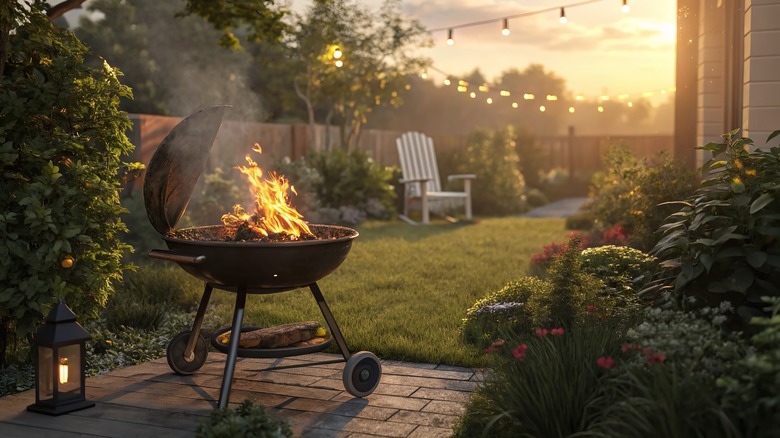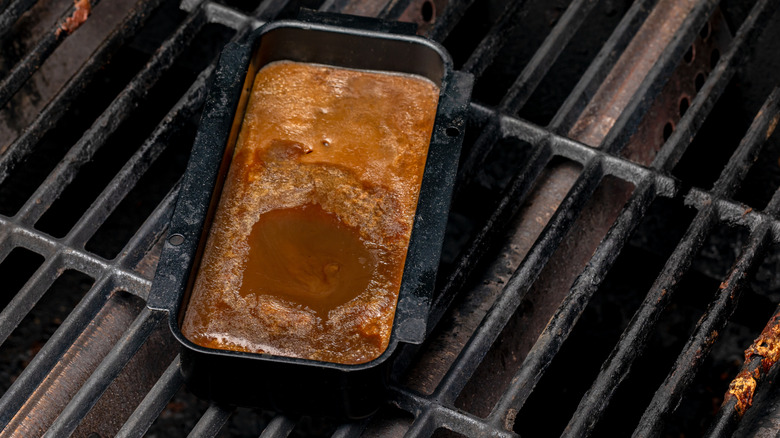BBQ Grease Splatter On Your Patio? Don't Sweat It, Here's What To Do
Throwing a barbecue's a ton of fun. You're hosting friends and family, meats are slow-cooking, and the grilled potato salad you made has garnered you lots of compliments. However, once the convivial embers fade, cleaning up the subsequent mess isn't so cheerful. Tidying up feels especially daunting whenever you spot grease splatters on the patio — outdoor oily stains make for pesky removal.
Thankfully, with the right technique, the issue isn't tough to resolve. To help explain an optimal remedy, Food Republic turned to Brian Gunterman, the CEO and founder of DDR BBQ Supply. He offers an easy-peasy two-step solution: "Put cat litter down first so it absorbs moisture from the concrete slab." Once the oil starts soaking in, he recommends buying some trisodium phosphate (TSP) from the hardware store and applying the product to remove the grease.
Usually, this powder is used to deep-clean surfaces prior to painting. Combined with hot water, the chemical is remarkably effective at eliminating grime, including mold and oily substances. However, take note that TSP is toxic, and even banned in some regions. So make sure to use gloves, wear long sleeves, and avoid run-off into gardening areas. And if you're reluctant to reach for the compound, try gentler techniques for cleaning grease off a grill, like baking soda or even dish soap.
Use drip pans and trim fat to prevent grease spills
Ideally, you shouldn't have to worry about spilled grease in the first place. Brian Gunterman advises that if your barbecue is well set up, the issue won't occur. For starters, he recommends investing in an angled drip tray, as it'll "help the collected grease to run." With indirect slow-cooking methods, you can easily position this pan underneath the barbecuing protein. Then, whenever you're making a dish like lamb chops with sauce, you can even use some of this accumulated fat for a rich baste. Whatever grease is left is easy to dispose of: Don't pour it down the drain, but accumulate it in a container to throw in the trash. Conveniently, many drip pans are dishwasher safe, too.
Furthermore, Gunterman says it's worth paying attention to the cut you're cooking. For especially fatty cuts, "render [your] fat on the indirect heat before you sear," he says — a way to mitigate flare-ups, too. And when you're barbecuing a cut like brisket, don't forget to trim off some of the fat cap to reduce grease accumulation. Combined with proper low-and-slow technique and a clean grill, such methods will ease any greasy disasters.


